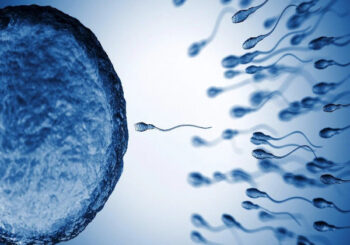By Lily Anderson
Staff Writer for Wake Up World
In a groundbreaking systematic review, Melissa J. Perry, Sc.D., MHS, Dean of the George Mason University College of Public Health, and Lauren Ellis, MPH, a doctoral student at Northeastern University, have uncovered a startling connection between insecticide exposure and lower sperm concentration in adult men globally. The findings of their research, published in the November 2023 issue of Environmental Health Perspectives, shed light on the pervasive impact of insecticides on male reproductive health.
[pro_ad_display_adzone id=”110028″]
The Disturbing Revelation
“Understanding how insecticides affect sperm concentration in humans is critical given their ubiquity in the environment and documented reproductive hazards. Insecticides are a concern for public health and all men, who are exposed primarily through the consumption of contaminated food and water,” warns Ellis. The research team delved into decades of human evidence, focusing on the health impacts of exposure to two widely used insecticide classes: organophosphates and N-methyl carbamates.
Associations with Lower Sperm Concentration
The systematic review revealed consistent associations between insecticide exposure and lower sperm concentration in adult men. This discovery raises serious concerns, especially in light of observed downward trends in semen quality demonstrated by other studies. Dr. Perry, the senior author of the paper, emphasizes the urgency of the situation, stating, “This review is the most comprehensive evidence sizing up more than 25 years of research on male fertility and reproductive health. The evidence available has reached a point that we must take regulatory action to reduce insecticide exposure.”
Unprecedented Comprehensive Review
The research team meticulously reviewed 25 human studies of occupational and environmental insecticide exposure conducted over 25 years. This systematic review is the most comprehensive on the topic to date, employing innovative methods to quantitatively synthesize decades of epidemiological literature. Titled “Adult Organophosphate and Carbamate Insecticide Exposure and Sperm Concentration: A Systematic Review and Meta-Analysis of the Epidemiological Evidence,” the study underscores the gravity of the situation.
Urgent Call to Action
The alarming findings demand immediate attention and regulatory action. Insecticides, ubiquitous in our environment, pose a significant threat to male reproductive health. As Perry and Ellis assert, it is crucial to address this issue promptly, with a focus on reducing insecticide exposure.
Conclusion
The research conducted by Perry and Ellis serves as a wake-up call, urging society to recognize the detrimental impact of insecticides on male fertility. This comprehensive review should prompt regulatory bodies to take decisive action to protect public health. The study’s publication in Environmental Health Perspectives marks a pivotal moment in understanding the consequences of insecticide exposure, emphasizing the need for collective efforts to address this critical issue.
Natural Detoxification Strategies
While specific methods for detoxifying the body from pesticides may not be extensively studied, adopting general lifestyle and dietary practices can support the body’s natural detoxification processes. Here are some suggestions:
1. Stay Hydrated
Drinking an adequate amount of water is essential for overall health and can help flush toxins from the body through urine.
2. Eat a Balanced Diet
Consume a diet rich in fruits, vegetables, whole grains, and lean proteins. These foods provide essential nutrients that support the body’s detoxification pathways.
3. Include Cruciferous Vegetables
Vegetables like broccoli, cabbage, cauliflower, and Brussels sprouts contain compounds that may support detoxification enzymes in the liver.
[pro_ad_display_adzone id=”110030″]
4. Herbal Teas
Certain herbal teas, such as dandelion tea and green tea, are believed to have detoxifying properties and may support liver function.
5. Cilantro and Parsley
Some studies suggest that cilantro and parsley may help the body eliminate certain heavy metals. Including these herbs in your diet may offer additional support.
6. Activated Charcoal
Activated charcoal is known for its ability to bind to certain toxins. While its effectiveness in removing pesticides from the body is not well-established, it can be used cautiously.
7. Regular Exercise
Physical activity enhances circulation and promotes the elimination of toxins through sweating. Exercise also supports overall health and well-being.
8. Sauna Therapy
Saunas may help the body eliminate some toxins through sweating. While more research is needed to determine their effectiveness in removing specific pesticides, sauna therapy can be considered as part of a holistic approach.
9. Probiotics
Maintaining a healthy balance of gut bacteria with probiotics may indirectly support detoxification, as a healthy gut is crucial for overall well-being.
It’s important to consult with a trusted healthcare professional before making significant changes to your diet or lifestyle, especially if you have underlying health conditions or are taking medications. Detoxification processes are complex, and individual responses can vary.
Reference:
- Lauren B. Ellis, Karen Molina, C. Rebecca Robbins, Marlaina Freisthler, Daria Sgargi, Daniele Mandrioli, Melissa J. Perry. Adult Organophosphate and Carbamate Insecticide Exposure and Sperm Concentration: A Systematic Review and Meta-Analysis of the Epidemiological Evidence. Environmental Health Perspectives, 2023; 131 (11) DOI: 10.1289/EHP12678
About the author:
Lily Anderson is a passionate wordsmith and dedicated explorer of cutting-edge scientific inquiries. Fuelled by a thirst for knowledge, she skilfully transforms intricate ideas into relatable tales, inviting readers to embark on a captivating expedition of revelation. Lily’s efforts play a crucial role in bridging the gap between experts and the wider public, evoking a sense of awe and encouraging insightful discussions about groundbreaking scientific advancements.
[pro_ad_display_adzone id=”110027″]







